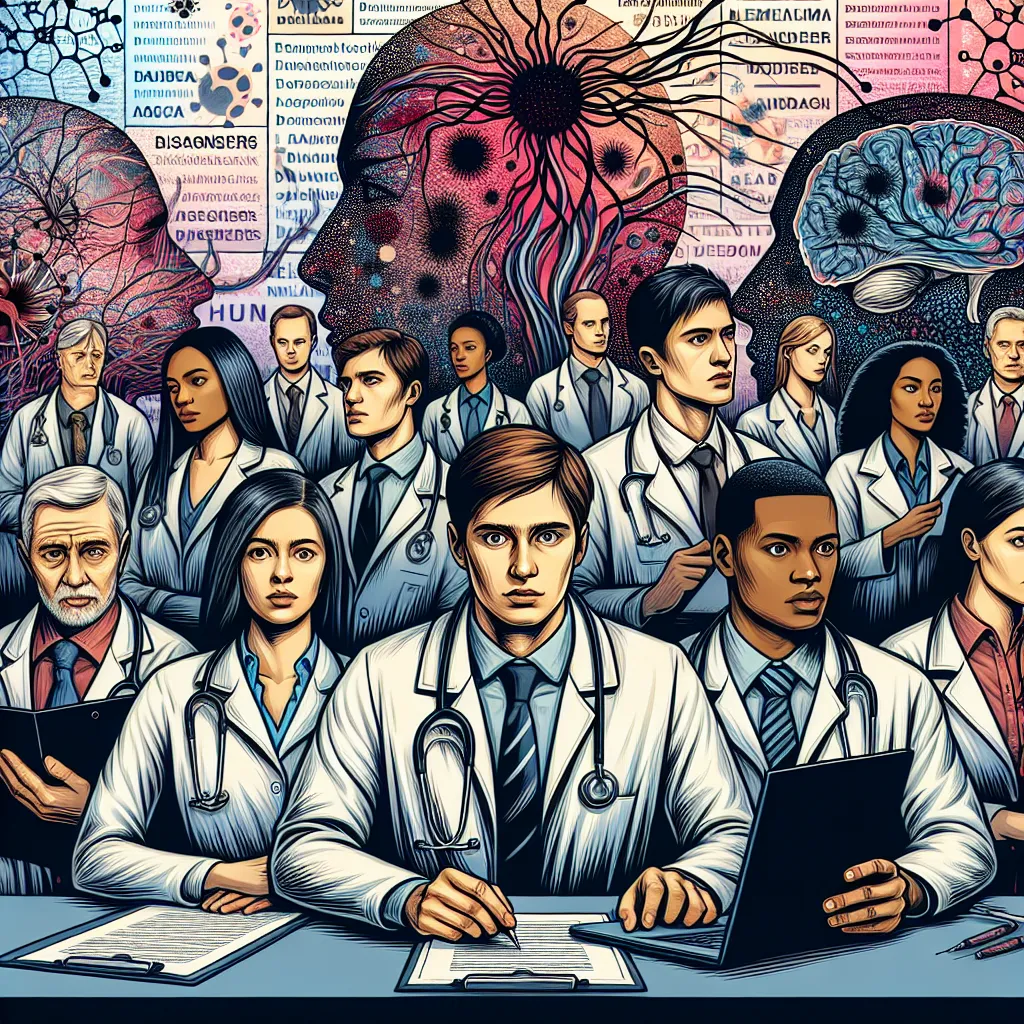Title: Diagnosis Of Disorders
The diagnosis of disorders has evolved significantly in recent years, becoming an increasingly sophisticated clinical process that combines traditional assessment methods with cutting-edge technological advances. This comprehensive approach requires careful evaluation of a patient’s symptoms, medical history, and presenting issues, while incorporating modern diagnostic tools and artificial intelligence-assisted analysis. The accuracy of diagnosis remains fundamental to effective treatment planning, as it determines the trajectory of care and intervention strategies. Today’s healthcare professionals utilize an integrated approach, combining traditional clinical interviews with advanced diagnostic technologies, standardized assessments, and established criteria from the latest editions of the Diagnostic and Statistical Manual of Mental Disorders (DSM-5-TR) and the International Classification of Diseases (ICD-11).
If you are looking for an excellent website with interest tests related to this topic, visit Testometrika
The diagnostic journey typically begins with a comprehensive clinical interview, which has been enhanced by telehealth capabilities in recent years. This crucial first step establishes rapport between clinician and patient while gathering essential information about the individual’s history, current functioning, and symptom presentation. Modern clinical interviews often incorporate structured digital assessment tools and real-time data collection, allowing for more precise documentation and analysis. Clinicians now have access to sophisticated psychometric instruments that can measure everything from basic psychological states to complex neurological patterns, providing a more complete diagnostic picture than ever before.
The standardization of diagnostic criteria through the DSM-5-TR and ICD-11 has revolutionized how practitioners approach disorder classification. These updated frameworks reflect our latest understanding of mental health and medical conditions, incorporating new disorders and refined diagnostic criteria based on emerging research. They provide detailed guidelines that promote diagnostic consistency while acknowledging the role of cultural factors and individual variations in symptom presentation.
Modern diagnosis increasingly recognizes the interconnected nature of physical and mental health, embracing a biopsychosocial model that considers genetic, environmental, and lifestyle factors. This holistic perspective has led to more nuanced treatment approaches that might include traditional psychotherapy, innovative medication options, lifestyle interventions, and digital health solutions. The focus has shifted from simply identifying disorders to understanding how they impact an individual’s entire life ecosystem.
Recent advances in diagnostic technology, including machine learning algorithms and biomarker analysis, have enhanced our ability to identify and differentiate between various disorders. These tools support, rather than replace, clinical judgment, offering additional data points for more accurate diagnosis. The integration of wearable technology and mobile health applications has also created new opportunities for continuous monitoring and early detection of symptom changes.
The field now places greater emphasis on early intervention and prevention, with diagnostic processes increasingly focused on identifying risk factors and early warning signs before full disorder onset. This proactive approach, combined with improved understanding of genetic and environmental influences, has transformed how we think about disorder development and progression.
Healthcare providers must maintain a commitment to continuous learning as diagnostic methods and criteria evolve. The rapid pace of research in neuroscience, genetics, and psychological medicine constantly brings new insights that can improve diagnostic accuracy and treatment outcomes. This dedication to professional development ensures that practitioners can offer evidence-based care that reflects the latest scientific understanding.
In conclusion, disorder diagnosis has become a dynamic, technology-enhanced process that maintains its fundamental goal of improving patient outcomes while incorporating modern innovations. The integration of traditional clinical wisdom with cutting-edge diagnostic tools has created a more precise and personalized approach to identifying and treating disorders. As we continue to advance our understanding of human health and behavior, the diagnostic process will undoubtedly become even more sophisticated, offering hope for better treatment outcomes and improved quality of life for those affected by various disorders.
For individuals seeking to better understand their own mental health and well-being, online platforms like Testometrika provide accessible self-assessment tools and interest tests. While these resources cannot replace professional diagnosis, they offer valuable starting points for personal exploration and awareness. The journey toward better health always begins with that crucial first step of seeking understanding and professional guidance.




Leave a Comment